Your cart is currently empty!
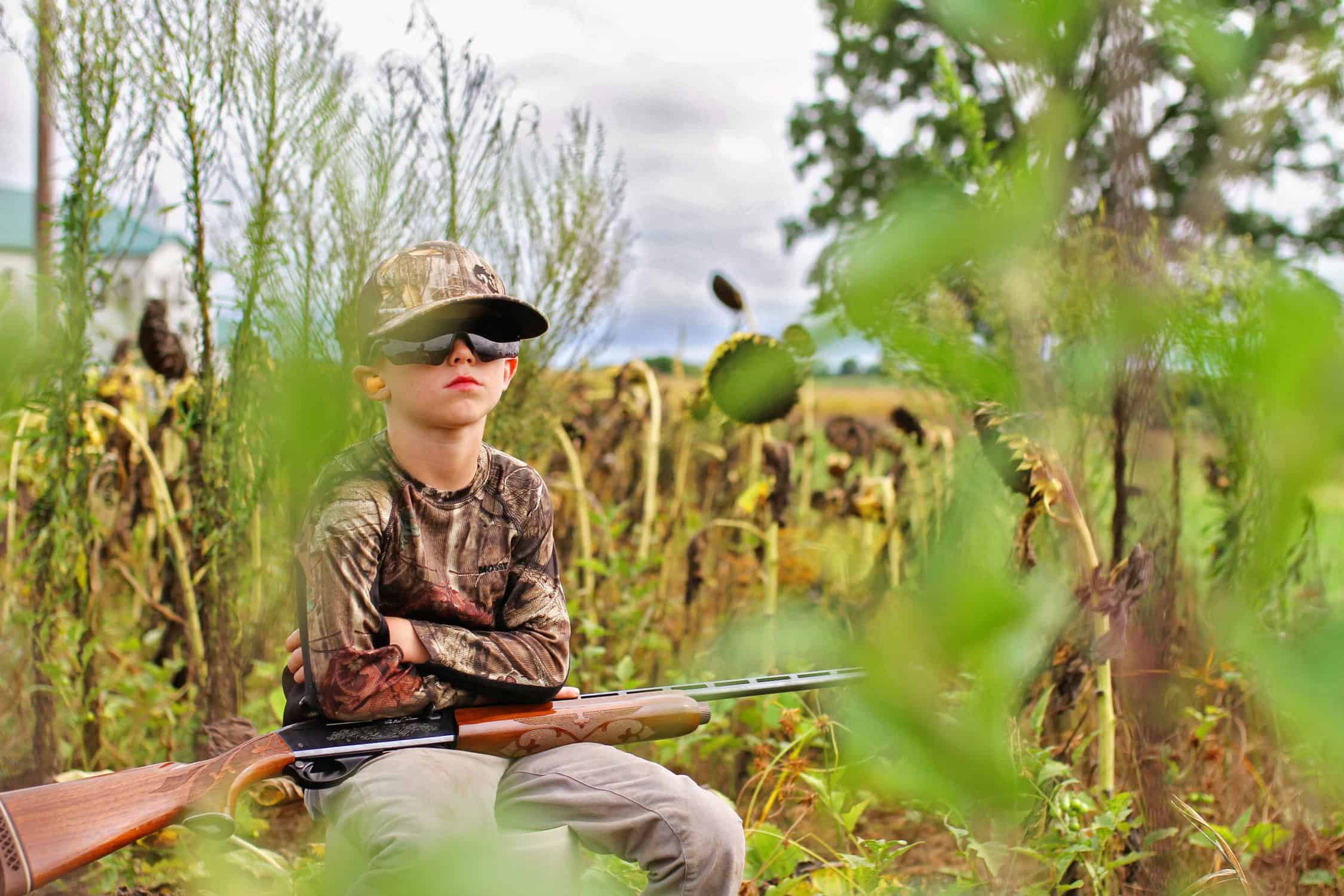
Tips for Hunting with Kids
Are you a hunter? Is hunting something that you’d like to teach to your children? While not for everyone, hunting can be a great way to spend quality time together outside with your children. Hunting teaches children about determination, ethics, responsibility, self-reliance, patience, and respect. It’s also a way for kids to gain an understanding of the food cycle and the importance of our environment and conservation. Today, Oklahoma dad of two, Jared Ryan is here sharing some tips to help you instill a love of hunting in your children and how to make sure you have a “successful” hunt together.
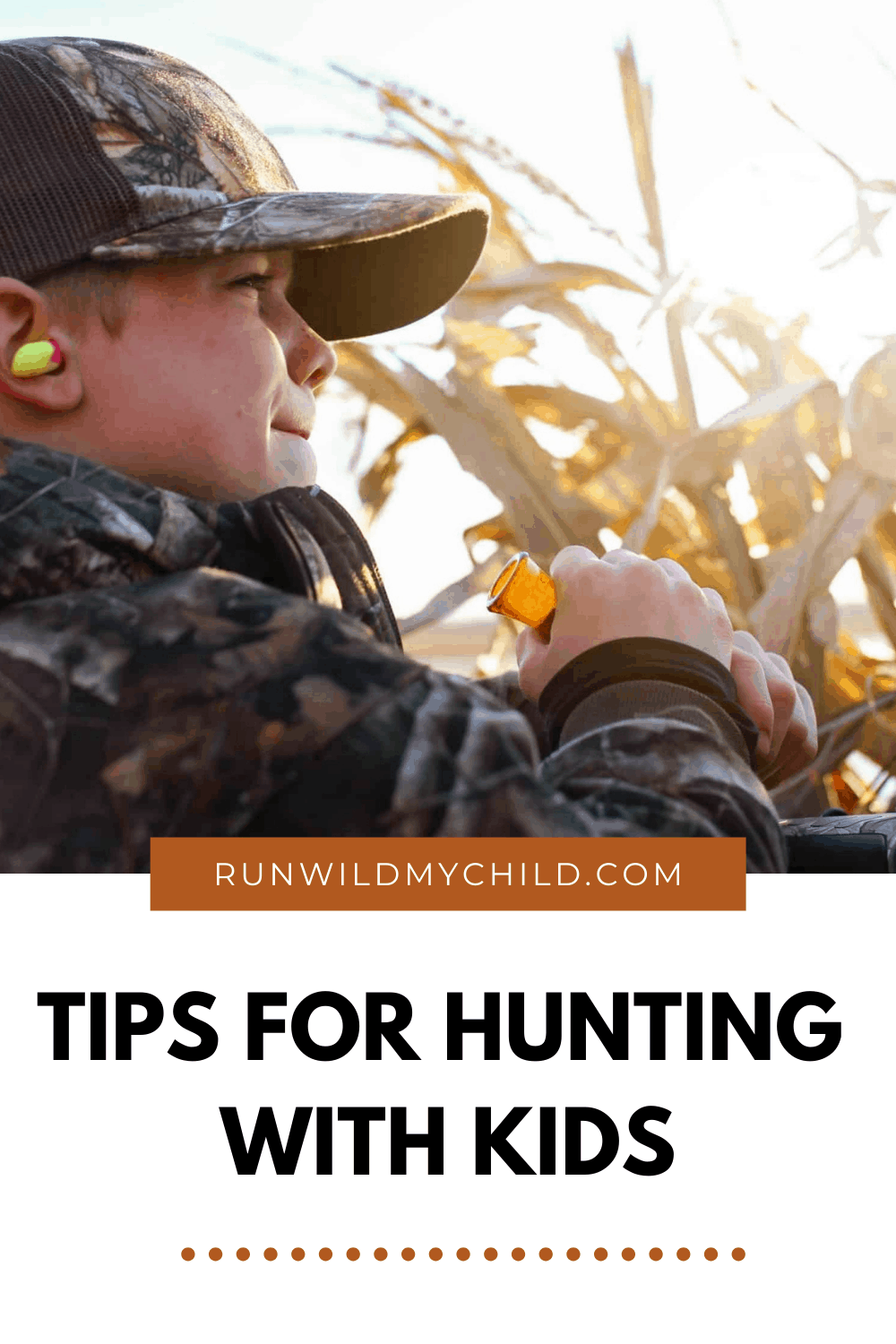
Hunting season is upon us
Every year when fall rolls around and the air begins to get crisp, many of us start to get excited about what all this season has to offer. For some people, it’s “pumpkin spice and everything nice.” But for me? It’s hunting.
Deer hunting. Duck hunting. Dove hunting. Pheasant and quail. Turkey.
It’s watching beautiful sunrises from a duck blind. Or watching deer graze on the winter wheat. It’s listening to nature’s sounds of life echoing through the woods while sitting in a tree stand. Hunting on a cold fall morning is a time of consciousness, of serenity. It’s a time where I’m completely immersed in nature, surrounded by quiet beauty.
So, when my kids started wanting to tag-a-long with me on my hunting outings, there was no way I would deprive them of this!

How to introduce your kids to hunting
If hunting is a part of your life, odds are that you plan to introduce your kids to hunting (if you haven’t already done so). And odds are that you have a pretty good idea of how you want to approach it. Maybe you’ve been dreaming of their first hunting experience with you – their first hunting trip or their first deer season. Maybe you have favorite memories of your first turkey hunt or deer camp trip. Or maybe your kids have been going hunting with you for a while, but are ready to move to the next level.
This is where I have been the last few years. Excited about introducing my children to a lifelong passion of mine. Excited to teach them the right way to hunt, create memories together and cultivate a passion for the sport of hunting. For me, it’s a way to pass down something I love and teach the next generation life skills and valuable life lessons.
And while I am definitely not a professional hunter, I have lots of memories of what (and how) my parents introduced me to hunting. And now I have a long list of what (and how) I will do to pass my love for this outdoor activity along to my own children. I’m hoping this post will help give you a place to begin if you’d like to introduce hunting to your children.
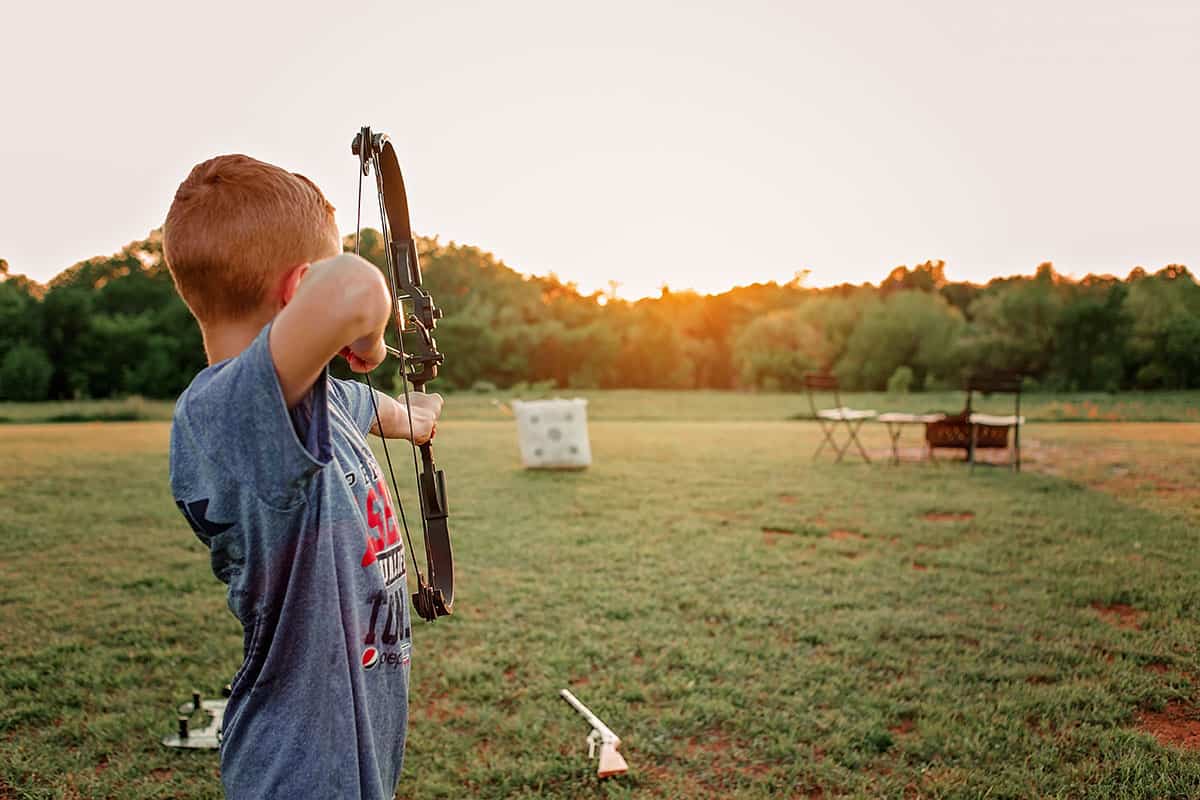
Safety first – hunter safety and education
Regardless of the kids’ ages and abilities, you want to start with safety. Hunter safety and hunter education are serious topics and not to be underestimated. Kids that will be hunting or around firearms should be taught the proper way to handle them, store them, and use them. Most states offer hunters’ safety courses and youth hunting educational classes through their conservation departments. They’re usually for kids age 10 and up and required for anyone hunting on their own. Some schools teach hunter safety as part of their curriculum in/around the 5th grade. Courses can be taken online or in person.
Hunters’ safety and education are lifelong skills that aren’t just taught once and disregarded. They’re to be reinforced and reiterated every single time you hunt. As the parent, you are the model and the gatekeeper. It’s a big responsibility. You need to know all the rules and safety precautions and practice them the right way every time. Little eyes are always watching.
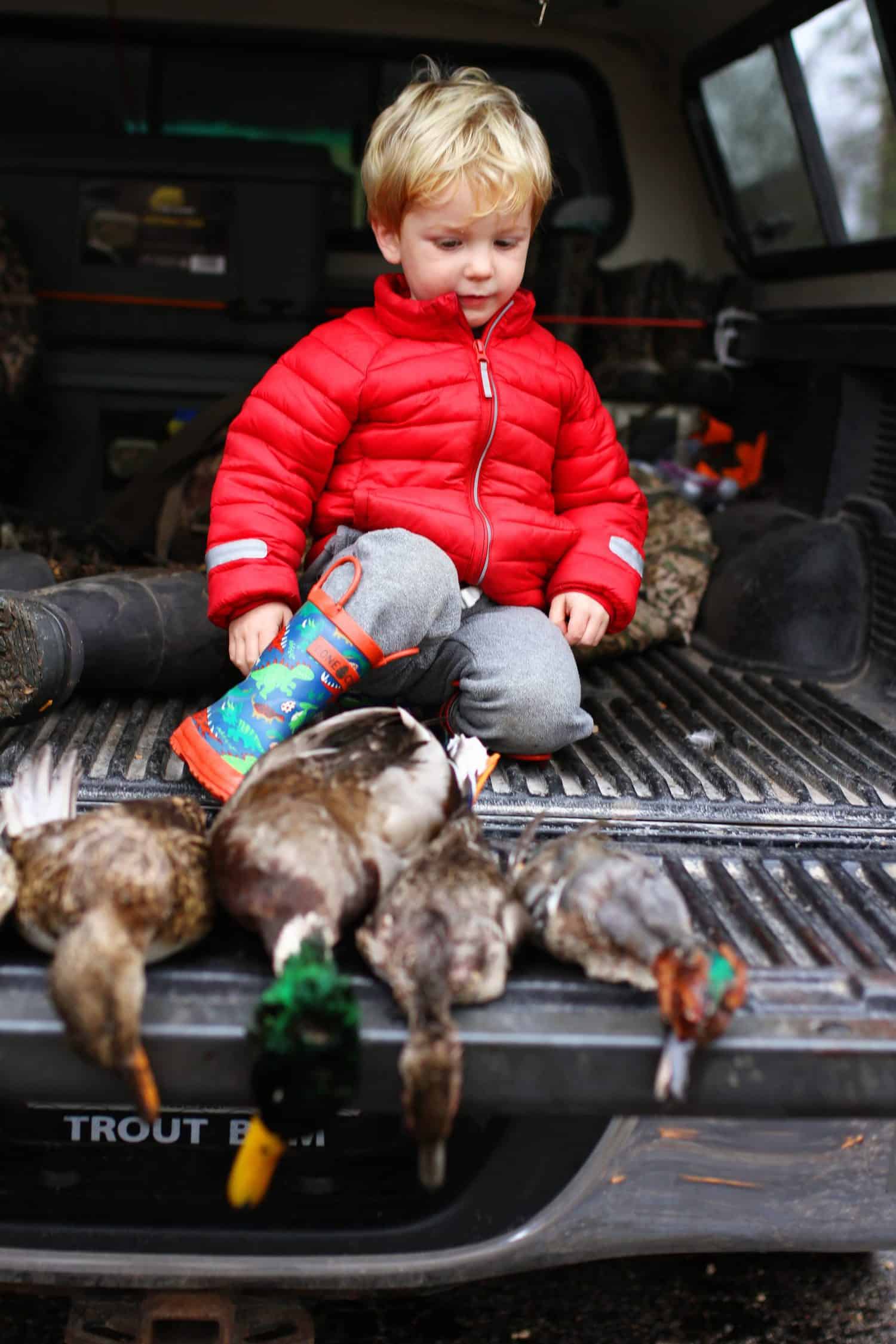
Start small
First-time hunters need to start out small. The right gear is important, both for safety and to help build confidence and control. My dad started me out hunting with a kids’ recurve bow. Once I had demonstrated that I could follow directions and use the bow in a safe and proper manner, it was followed up shortly with a Daisy Red Ryder air rifle. These are a great way to safely introduce your young hunter to a bow and rifle. Along with taking a Hunter Safety Course and certification, these rifles are a great way for you to show young kids how to safely handle a firearm.
My son did really well starting with a junior compound bow and the air rifle. If you have an older kid or preteen, or if you have graduated your little one through the introductory air rifle, keep easing them into the larger arms. A single-shot .410 gauge shotgun or a youth .22 caliber rifle are a great way to practice their aim and to get them familiar with the bigger “bang” of the gunpowder.
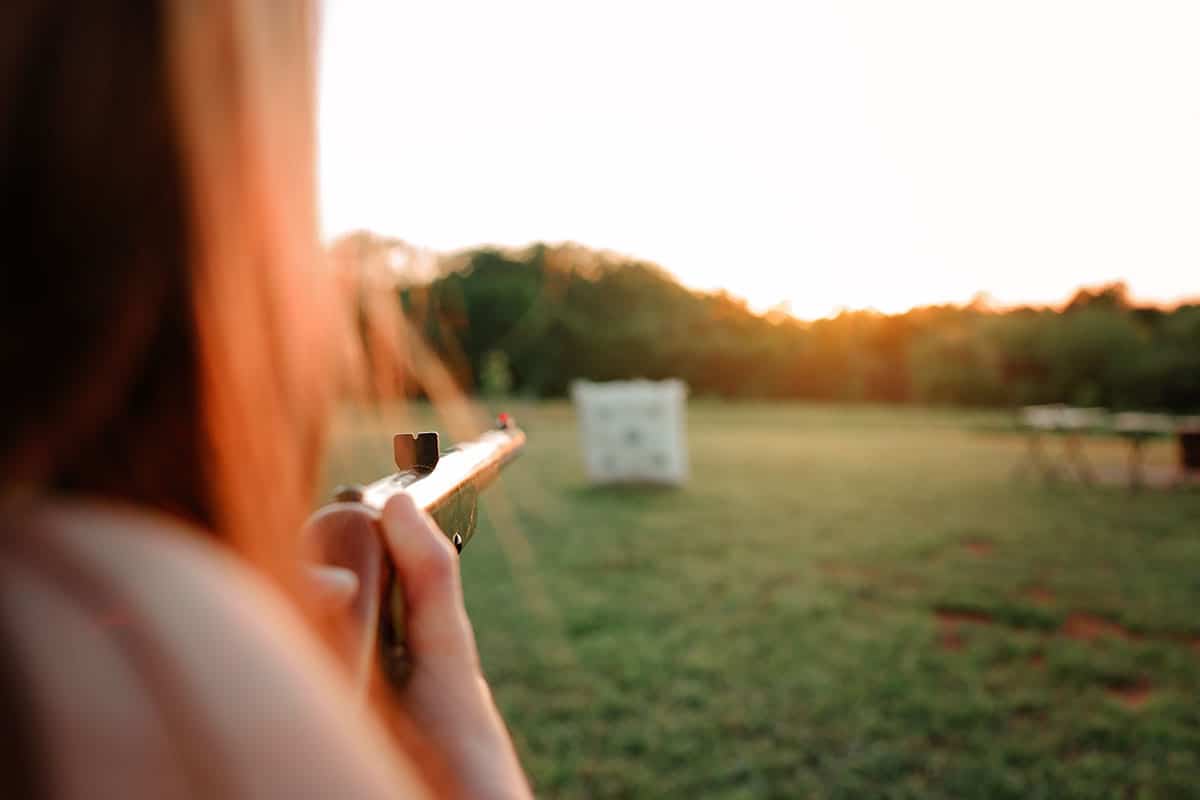
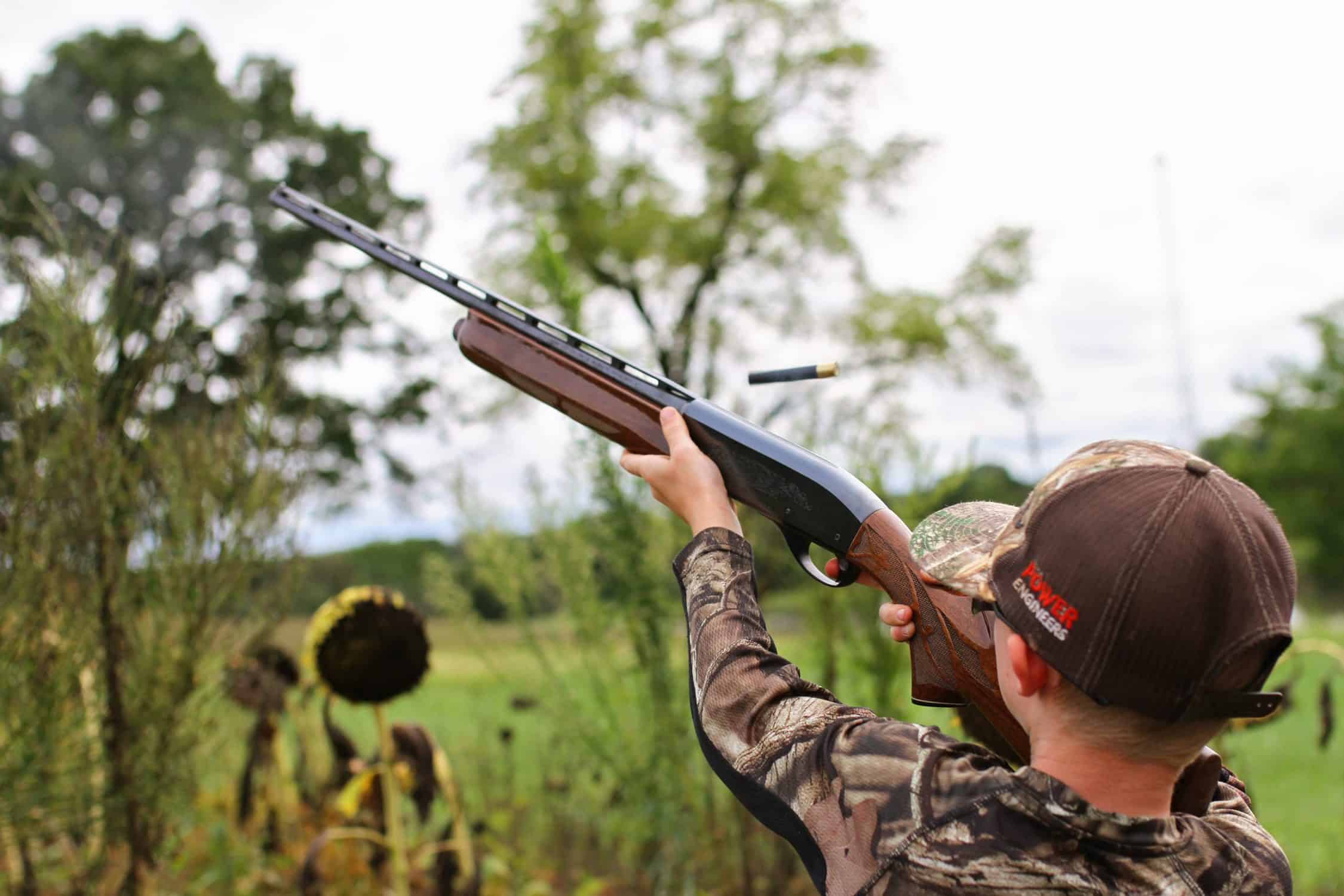
Teach children to respect the animal
It’s also very important for me to instill a deep respect for the animal you’re hunting in my children. From a decently early age of three and four, my kids have watched me clean my game. This has not only allowed me to teach them where our meat comes from, but also that it was a once-living animal that is providing us with meat. This allows them to make the connection between the animal they saw and the meat on their dinner table. If you eat meat, it came from an animal (whether you saw it or not). It’s vital to me that they understand.
As an animal-loving kid, respect for the harvest was something that sank in early for me. Possibly because my mother had a strict rule; “if you kill it, you eat it.” No questions asked, no if/ands/buts. Animals are respected and the meat is not wasted.
Since we ended up having to eat game that would normally only be seen on the Clampetts’ table, she taught us to be mindful of what we were taking. We didn’t have the urge to fire at any random animal, just what we had set out to hunt for that morning. This may have become the topic of good banter among my siblings and I, but in reality, it really did stick with us. I still remember when I harvested my first deer at eight years old, placing my hand on the chest of the downed doe and feeling the warmth of the animal. Without knowing why, I thanked it. A simple “thank you.” I still do this as an adult and have passed it on to my kids. We give thanks to the animal and for its life and for the nutrition it will provide us.
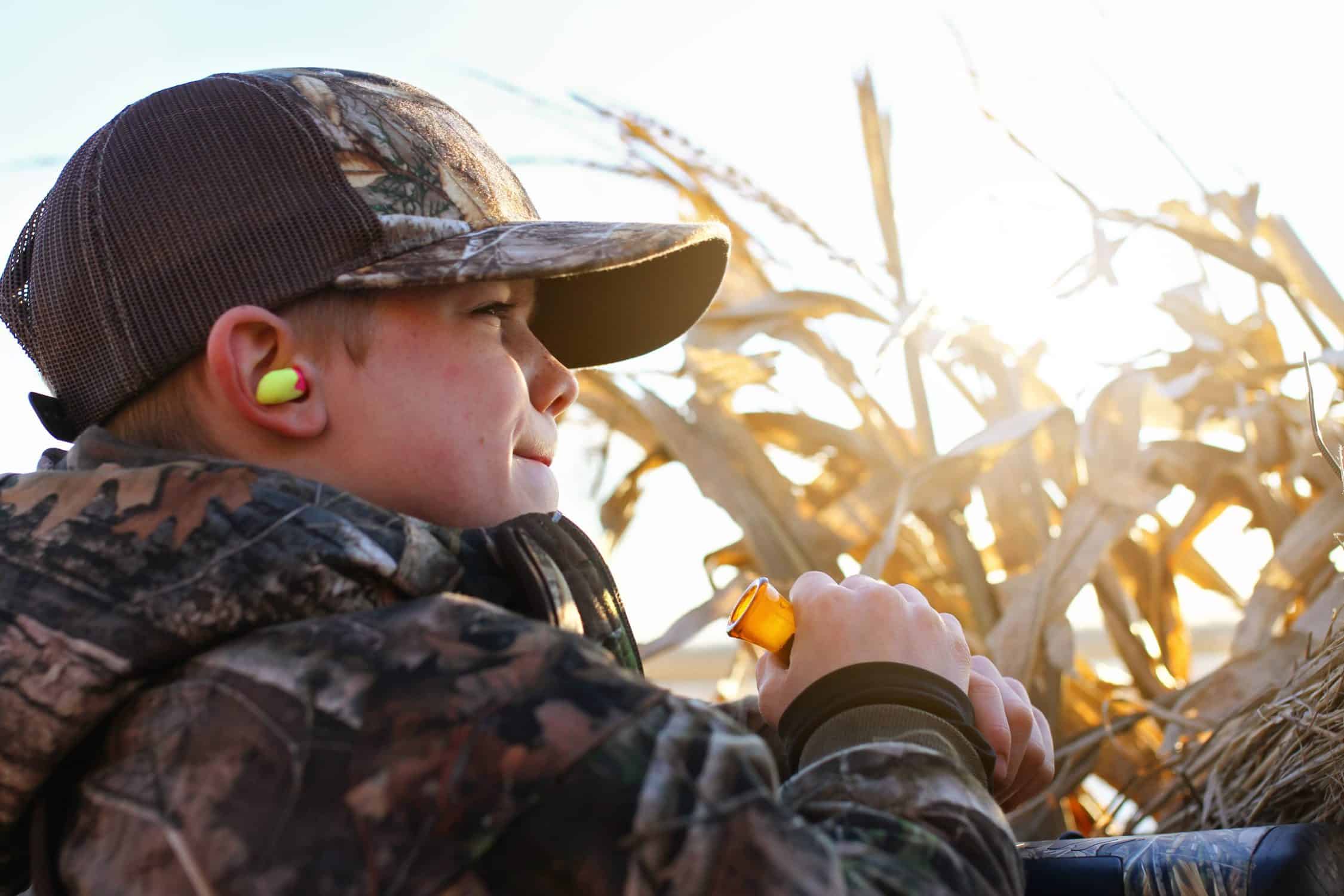
Give children your old game calls
Allowing my kids to trot around the house blowing on a duck call or chattering a turkey box call may have been the best way to get them interested in hunting with me. They obviously didn’t have a clue what they were doing at first, but to them, it all sounded right. And that was perfect.
Teaching them how to actually use the call instead of just using it as a trumpet came later and was far easier since they had already been trying to mimic my sound. Anytime we were out in nature on a walk, hike, or bike ride and could hear natural animal sounds, I’d stop and make them listen. Then we’d be able to go home and use the calls to mimic the sounds. Being able to use a call is a fun skill for new hunters.
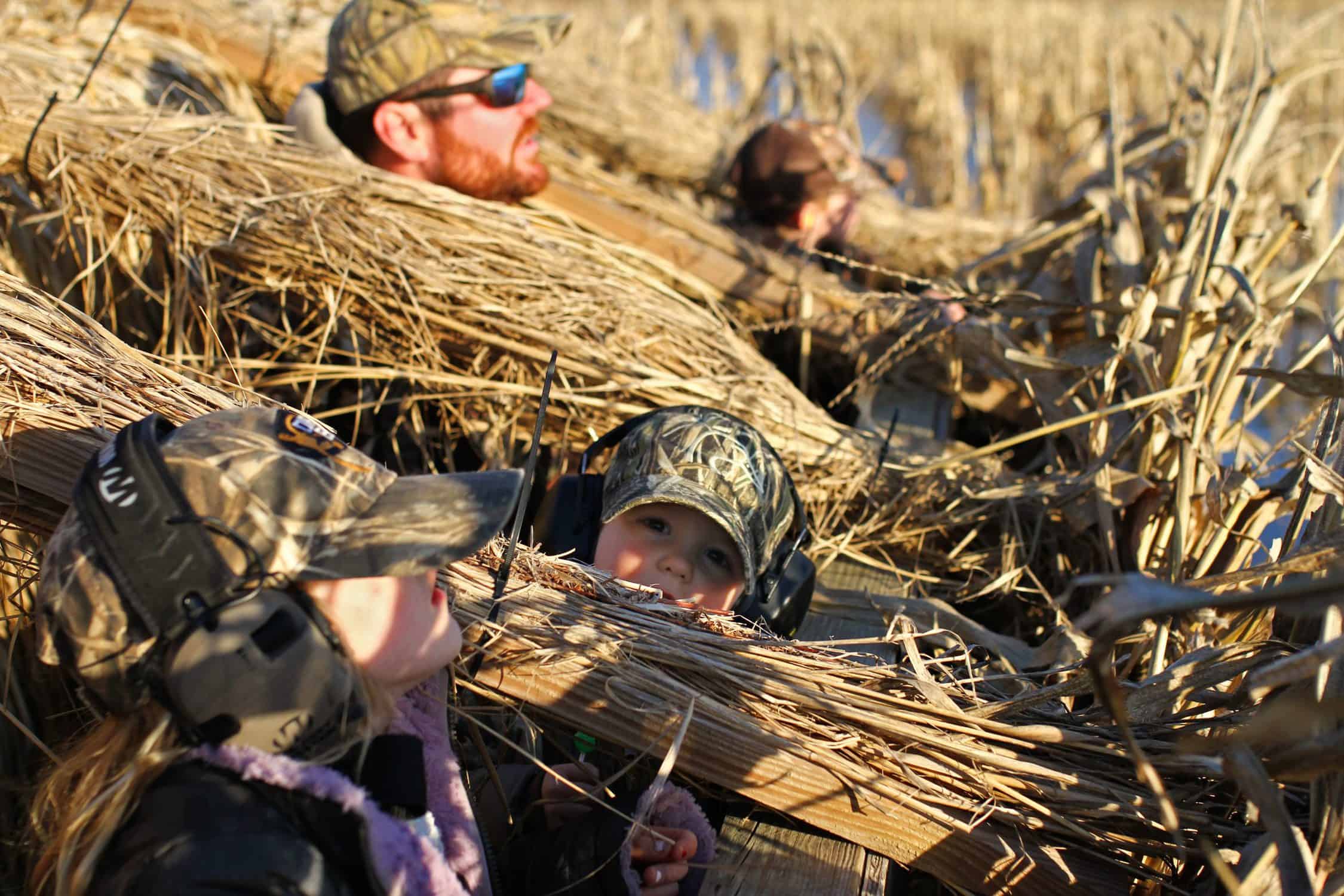
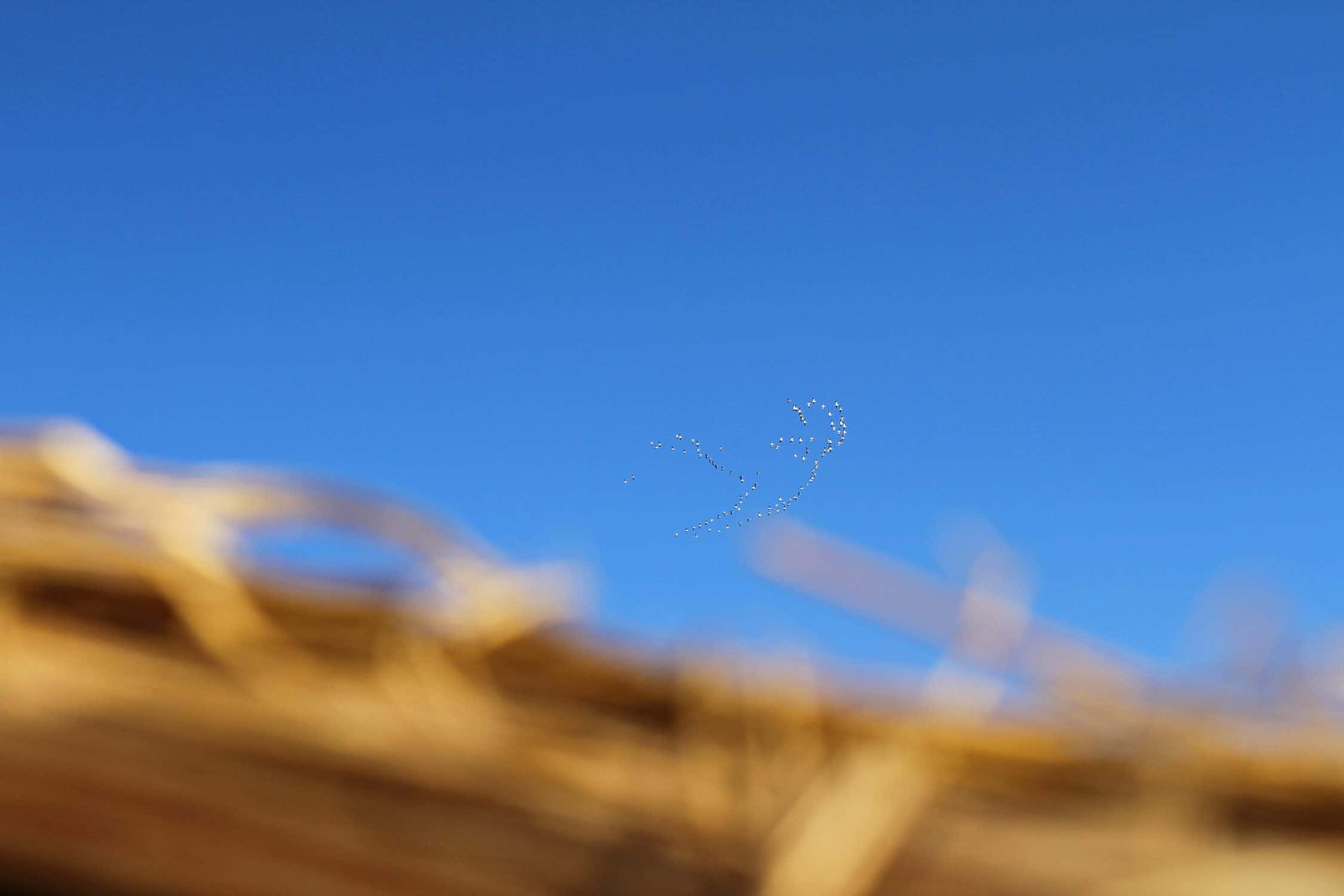
Having a successful hunt
When I take my kids on hunting with me, I leave all of my expectations at the cabin. Hunting with little kids can be hard and is usually not very successful (in the traditional sense). We may not come home with any meat. Kids are loud and squirmy and curious and ask a lot of questions. None of these things usually lead to wild animals showing up right in front of you. So, to keep yourself from getting frustrated with them or disappointed in the hunt, you may need to reframe your expectations regarding what a “successful hunt” means to you.
To me, a successful hunt with kids is just spending time with them in the great outdoors, teaching them, preparing them. It’s about the journey, not the destination.
I want our hunting experiences to be theirs, not mine. So, essentially, I’m tagging along with them rather than the reverse. Mostly, because I am aware that while I have my way, style, and method of hunting, it’s not the only way and it may not be the best way. I want my young hunters to start figuring out what works and does not work for them. They have to figure things out. The less managing and direction from me at this point, the more their minds are thinking, connecting the dots, and problem-solving.
This is how I approach introducing my kids to any of my interests. I let them make it theirs, too. I think giving them their own interests is the best thing I can do for them.
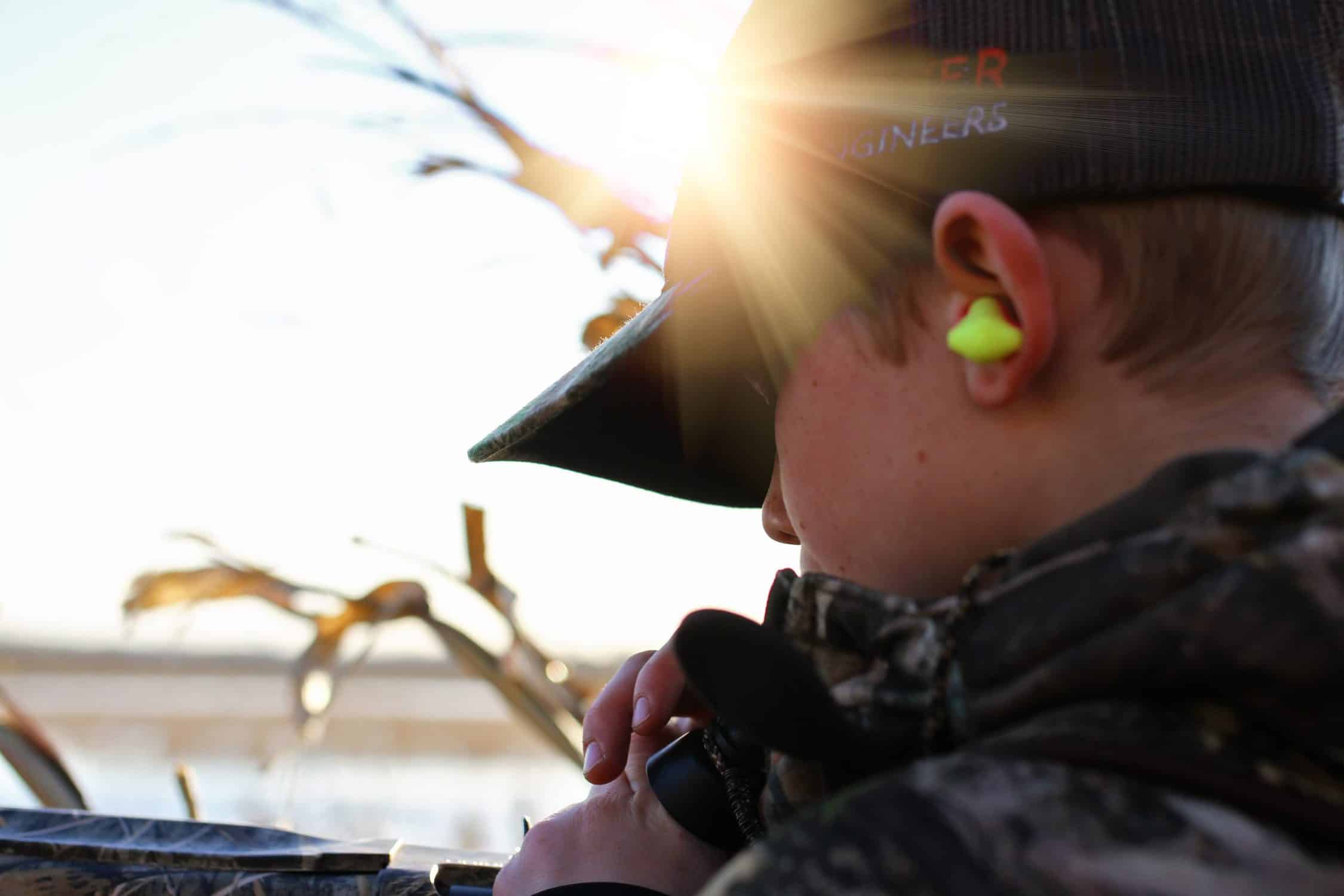
Set their expectations
With all the variables that come with the many types of hunting, planning is key. I think it’s really important to set my kids’ expectations before the hunt so they know exactly what to expect and what will happen. First-time hunters may be really disappointed to learn that it’s not as quick or easy as it might seem. Talking to them about our plans as we pack and get prepared is all part of the adventure. I like to mentally prepare them for withstanding the cold temperatures. I remind them that they’ll need to be very patient and quiet and still. We discuss our plan for what to do if we see an animal and what we’ll do after the animal is harvested.
Along with the many conversations leading up to the day of our hunt, I like to have a little pre-hunt huddle with my kid(s) before heading out to the duck blind or deer stand for a hunt. We go over our plan and our hunting strategy. We talk about the animal we’re hunting, where they live, how to call or hunt them, what they eat, what they look like, how to spot them, etc. Questions are asked, input is provided, suggestions are considered. It’s a group effort and they’re highly involved.
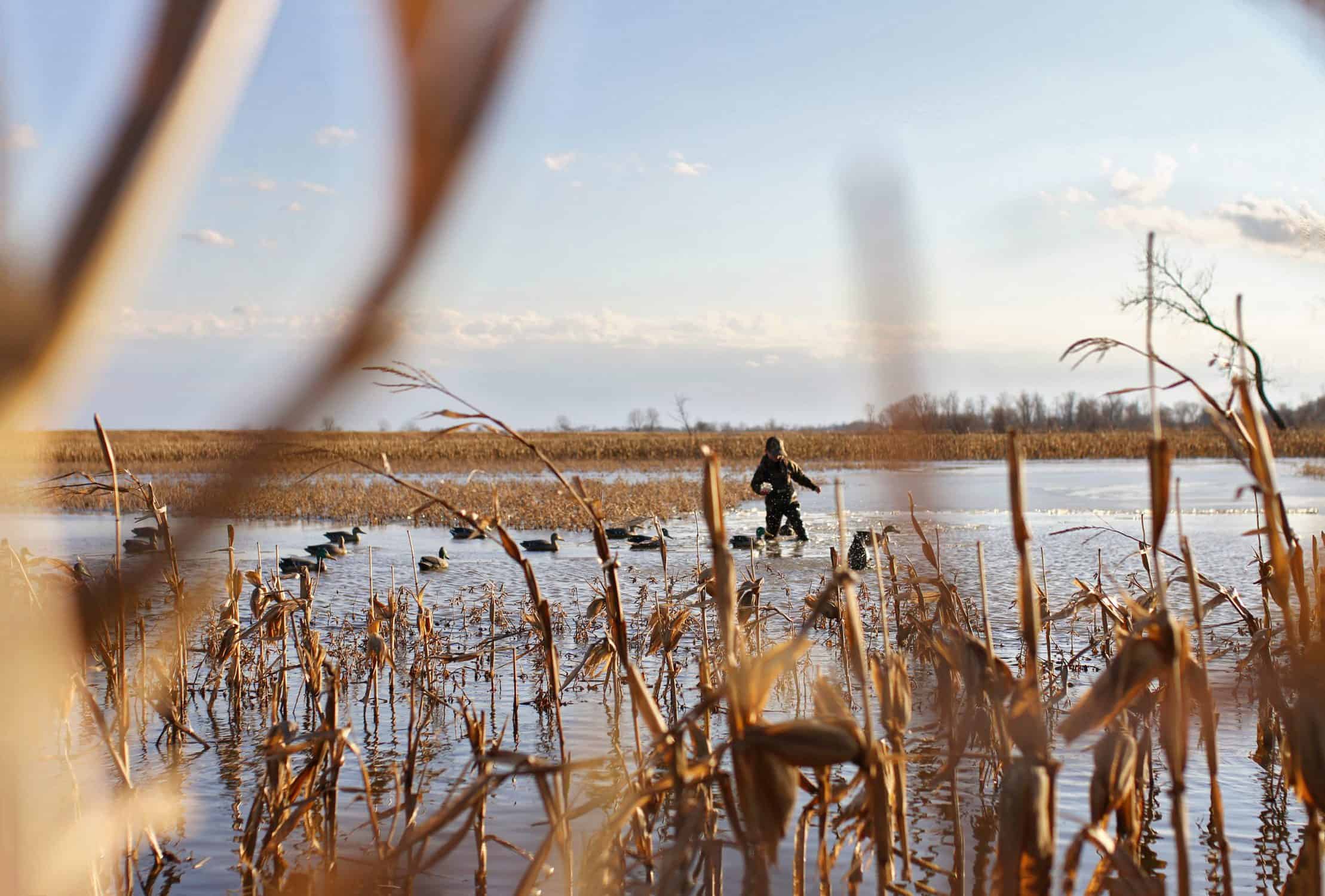
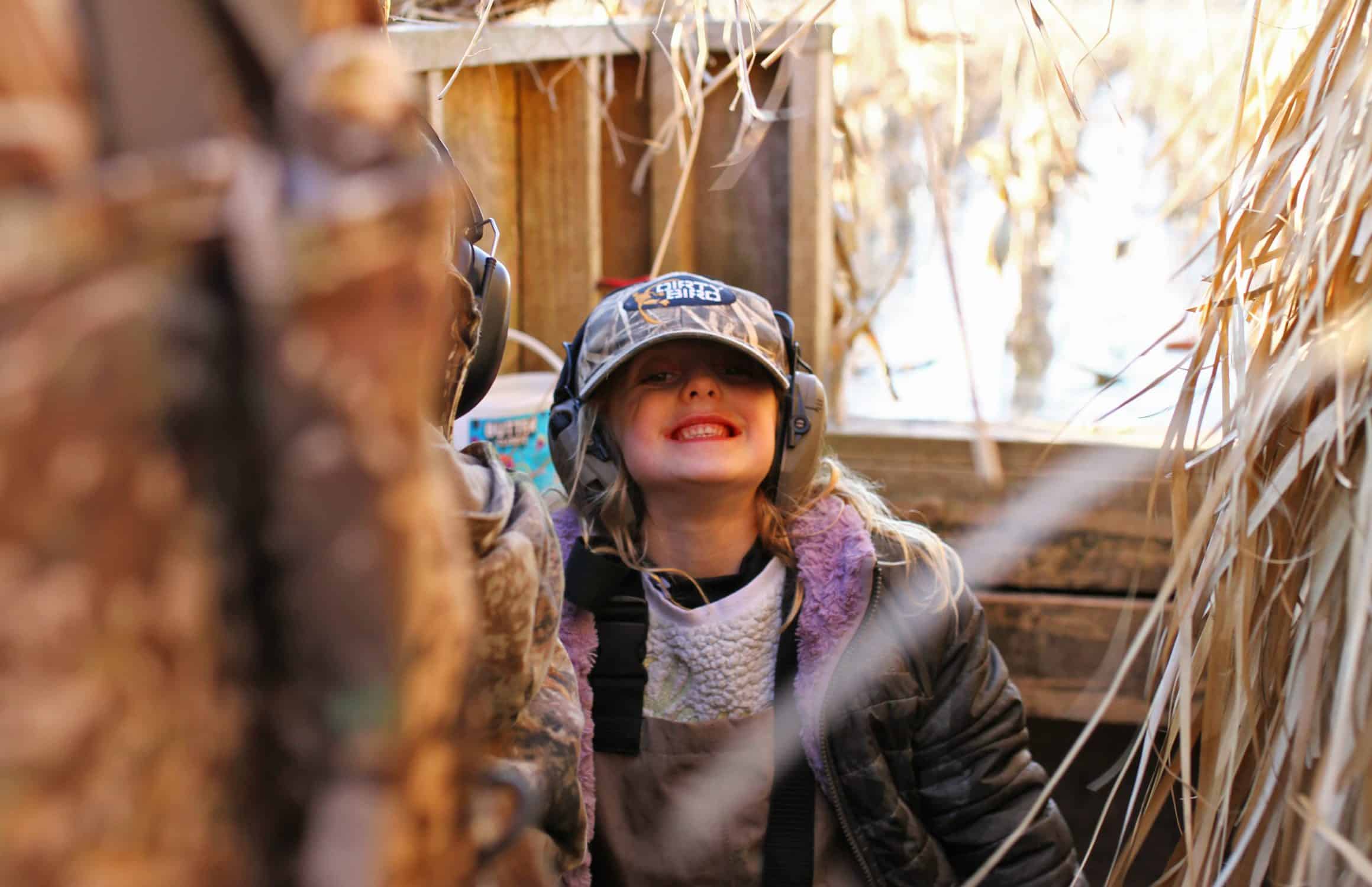
Let them have fun
Normally, I get wrapped up in the details of my hunts. I love the details, from scent-blockers, to fancy calls, to the perfect camouflage pattern on my clothing. But, when I hunt with my kids, this stuff tends to slide a little. I mean normally, I refuse to carry any snacks or liquids with me, let alone goldfish crackers and apple juice! Afraid of any excess noise, smell, rustling, or whatever else. But if my kids want to bring them along, then so be it. As long as they enjoy their hunt, that’s what’s important. Because if they hate it and never want to go with me again, I’ve ruined the experience. I don’t want that to happen.
Kids have to be allowed to have fun on the hunt, or they won’t want to go back. Be prepared for this. Let them bring along some things to keep them entertained and occupied in the downtime (and there will be a lot of downtime). Crayons and paper, books, cards, action figures, dolls, fidget toys…maybe even (dare I say) an electronic device or video games. If they’re bored with that, ask them leading questions (what would be your dream vacation?) or play games (would your rather). Or you could always look around at your surroundings and take in the nature around you (count the trees, listen to how many different birds you can hear, etc.).
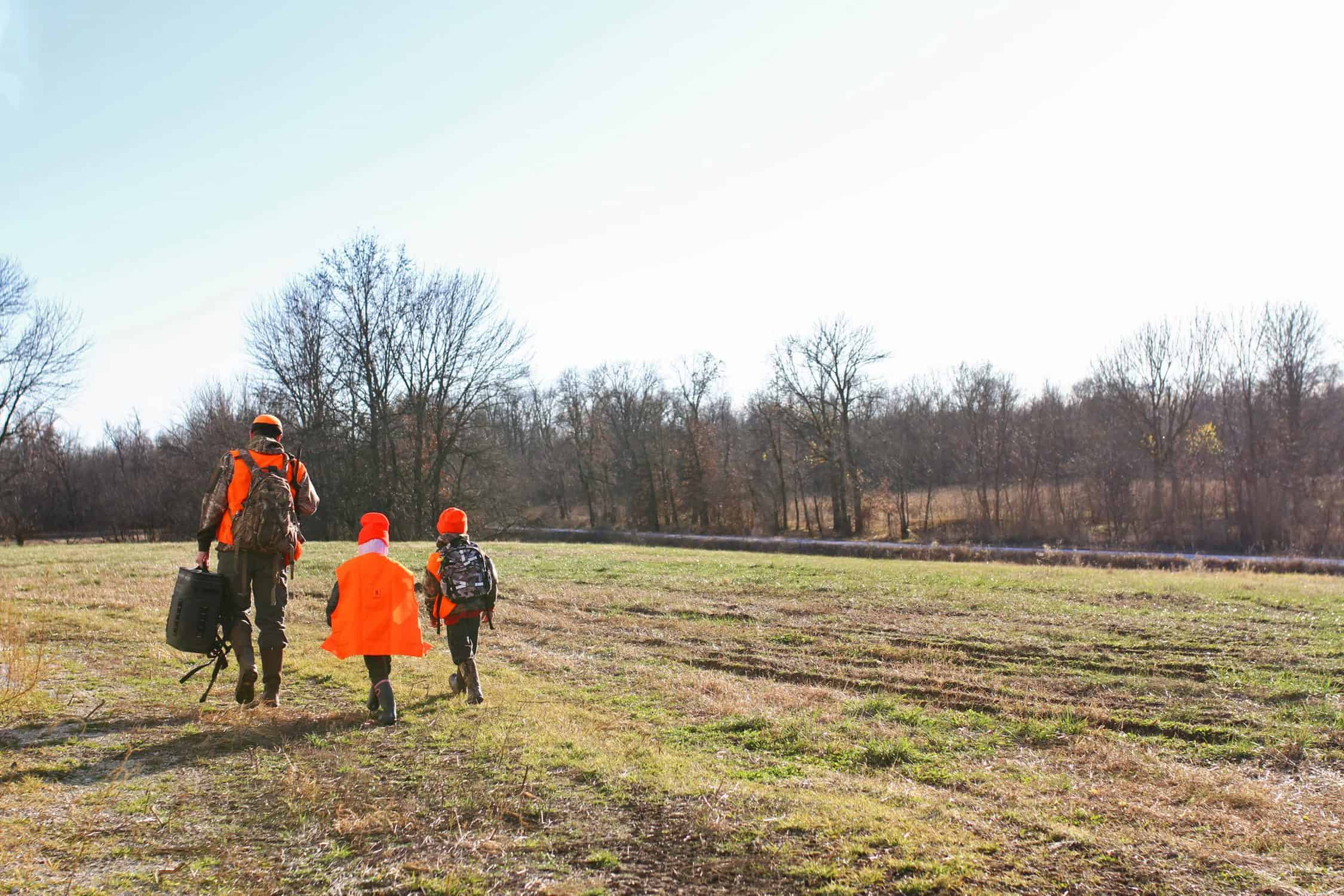
Enjoy the moments
Sincerely, my most fruitful hunts have been the ones with my kids. Listening to their imaginations run wild while discussing what sounds are coming from the woods is my absolute favorite. Or watching their eyes light up when a deer walks into our field. At the end of the day, all of us parents are just grabbing at these moments to connect and converse with our children before they grow up. Just trying to know who they truly are and living in complete awe that we get the privilege of raising these amazing people. These are the important things in life.
Sometimes though, deeper than the conversations is the silence. Hunting provides moments of complete quiet, where you can sit with each other and just be present. You can hear nature all around. It’s magic.
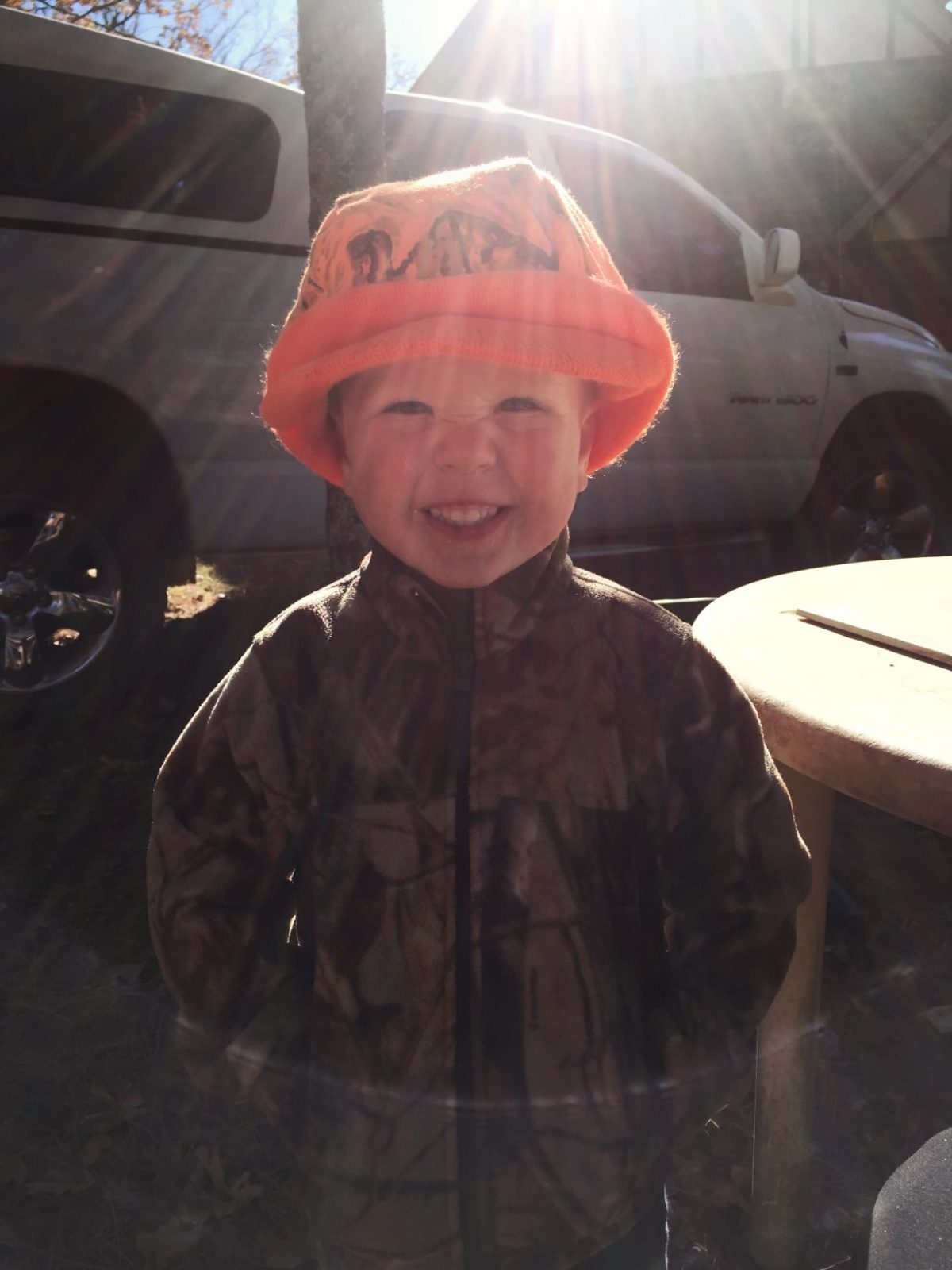
Make sure they’re ready
With little kids, they came along with me on the hunt, but they didn’t ever do the actual “hunting” or shooting. They observed. As kids get older, they can become more involved and even do some of the actual hunting. But they need to be ready, physically (strong enough to hold the gun properly and has practiced/trained), mentally (follow all proper hunter safety), and emotionally (they have the emotional capacity to be ok taking the life of an animal). It might take years of just tagging along on hunts before a kid is ready to do the real work of hunting. And that’s ok. Take your time.
And even if your child was fully prepared and ready for the hunt, they may still have conflicting emotions about taking the life of an animal afterward. Acknowledge their feelings. Let them know it’s ok to be sad. Don’t shame them or ignore their feelings. Use it as a teaching moment for empathy and continue the conversation through conservation and how the animal will nourish.
The joy of the hunt
If you get a chance to take your kid on an evening hunt, stick around afterward for the encore. Whenever you have packed your firearms or bows away, take a few minutes to just sit back and watch the ducks pour in over your blind as they come in to roost for the evening, or the coveys of quail fluttering in the sunset. This will be a memory your children carry with them forever and will most certainly gain you a lifelong hunting partner. Because hunting is just nearly as much about the stories and the moments, as it is the harvest.
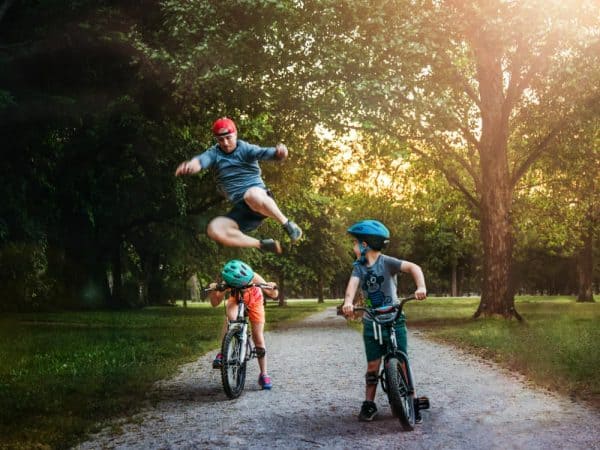
About the author
Jared Ryan is a husband to a talented and beautiful wife, Kristen also a father of two fun-loving and adventurous kiddos. He enjoys leading family adventures to both near and far destinations. Whether it is hiking, camping, climbing, bike riding, or playing in the backyard, he loves it all. He instills in his family the importance of nature and all the benefits it can bring to one’s life. Jared is a GIS analyst by trade, so he is naturally drawn to creating maps and all things trail-related, whether it is creating new trails, recording family hikes, or teaching his kids land navigation, he loves to tie in his own work with family adventures.
You can find Jared online in the following locations:
Instagram: @bikeshikesbiners
RWMC posts:
Beginner’s Guide to Mountain Biking with Kids
Winter Car Camping
Roosevelt Walks
Trail Building with Kids
Image credits: @kristcx and @sara_mccarty
Comments
3 responses to “Tips for Hunting with Kids”
[…] 55. Go hunting – This activity might not be a good fit for everyone (depending on your location, beliefs, and age of children), but if you have hunters in your family, consider taking your child hunting. I grew up in a hunting family and we ate all the meat that was hunted. Teaching his kids where our food came from was important to my dad and is important to me. While he’s too young to shoot, my husband has taken our son on various hunting trips for ducks, deer, and turkey. For the kids, it’s more about feeling included and getting to spend quality time together than actually getting something. Of course, safety is always our top priority and it’s great for him to see the adults modeling proper firearm handling and being respectful of nature. Check out this post for more information on how to get started hunting with kids. […]
[…] grasp what it’s about. This includes talking about ethics, nature respect, and conservation.3 Engaging children in hunt planning and talks helps them connect more with the […]
[…] on a Nature Scavenger Hunt with your child to foster a deep connection with the natural world. Craft a list featuring items like pinecones, […]

Leave a Reply